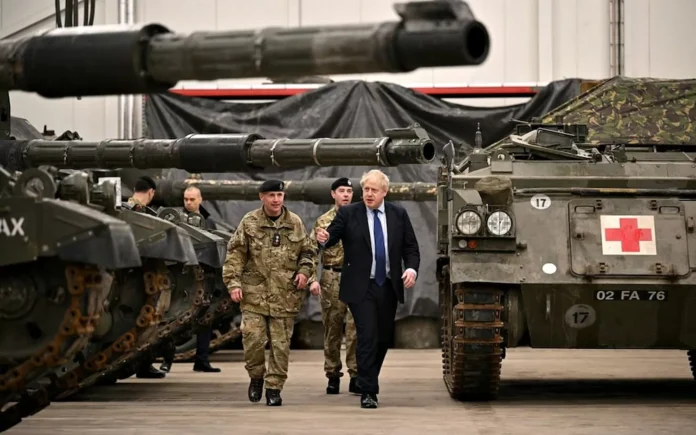In recent years, Western countries have renewed discussion about the potential deployment of their regular army units to Ukraine. However, there are a number of conditions that must be met before any such deployment can take place.
The news spread quickly after British Defense Secretary Ben Wallace stated that the UK would consider sending troops to Ukraine if certain conditions were met. This announcement has sparked both debate and speculation among political leaders, military experts, and global citizens.
It is no secret that the conflict in eastern Ukraine remains ongoing, despite the implementation of a ceasefire agreement back in 2015. And with Russia’s continued involvement in the region, tensions have only escalated. Many fear that the situation could potentially worsen, leading to a full-blown war.
In response to this, Ukraine has been seeking assistance and support from its Western allies. And while NATO and other countries have shown solidarity with Ukraine, the idea of sending in their own troops has always been a touchy subject.
However, with recent events including Russia’s military buildup near the Ukrainian border and the annexation of Crimea, the conversation about sending troops has resurfaced.
But before any decision is made, countries like the UK have made it clear that certain conditions must be met in order for their troops to be deployed. These conditions include a request from the Ukrainian government, the support of the international community, and the guarantee of support from other NATO member countries.
It is understandable why such conditions are in place. Sending troops into a foreign country is a serious decision that must be thoroughly considered and planned out. The potential risks and consequences must be carefully evaluated, and a strong support system must be in place.
But beyond these conditions, it is important to recognize the potential positive impact that such a deployment could have. Not only would it demonstrate a strong show of support for Ukraine, but it could also serve as a deterrent to Russia’s aggressive actions.
Furthermore, having foreign troops on the ground could potentially provide a sense of security for the civilians living in eastern Ukraine who have been caught in the crossfire of this ongoing conflict. It could also help to strengthen the Ukrainian military’s capabilities and provide valuable training and resources.
On a larger scale, the deployment of Western troops could send a powerful message to Russia and other countries that might consider similar aggressive actions. It would show that the international community is united against such aggression and is willing to take action to defend the sovereignty and territorial integrity of a sovereign state.
Of course, any decision to deploy troops must also take into consideration the potential risks and repercussions. But, with proper planning and support, these risks can be mitigated.
And the idea of sending troops to Ukraine is not a novel one. In fact, many Western countries have previously provided non-lethal military support to Ukraine, including training, equipment, and logistical assistance. As such, sending troops would not be a completely new concept or operation.
In conclusion, the discussion of sending Western troops to Ukraine is a complex and multifaceted topic. While certain conditions must be met before any deployment can take place, there is potential for such action to have a positive impact on the ongoing conflict. It is a decision that must be approached carefully and with strong support from both the Ukrainian government and the international community. But ultimately, it is a decision that could potentially bring a sense of security and stability to the region, and send a powerful message to those who seek to undermine the sovereignty of a sovereign state.

